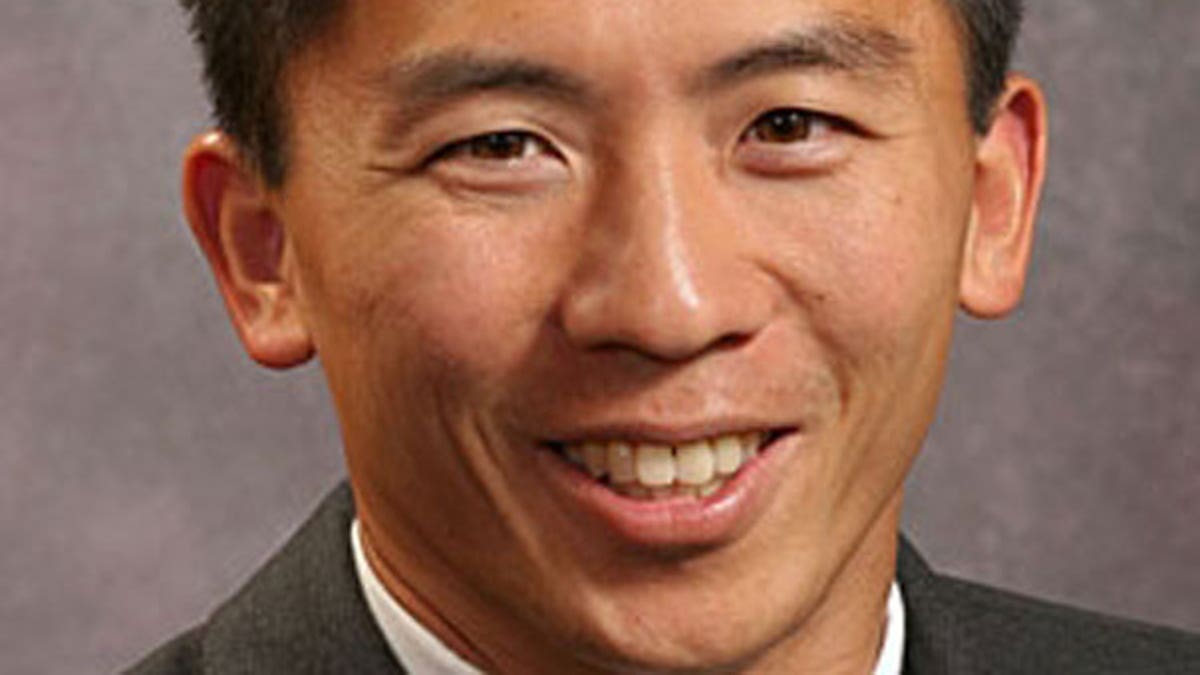
Goodwin Liu is President Obama's nominee to be a judge on the 9th Circuit Court of Appeals (Stanford University).
Republicans are pushing back on Democratic claims that they're stonewalling President Obama's judicial nominees, saying things may be bad now -- but they were far worse under President Bush.
Democrats were notorious for filibustering judicial nominees during the Bush administration, a situation that got so heated, both parties had to strike a deal to prevent GOP leaders from rolling over foes with the so-called "nuclear option." And while nominees under Obama are having a tougher time clearing final confirmation than under Bush, the candidates are getting hearings three times faster than they did during the Bush years.
"Hearings have been scheduled at a much more rapid case," a Senate Republican aide said. "Republicans have not engaged in any indiscriminate stall tactics, and to suggest otherwise is inconsistent with the numbers."
According to GOP-kept data, Circuit Court nominees have waited an average of 48 days to reach committee. They waited an average of 135 days under Bush -- and during the first two years of the Bush administration, that number was 176.
But with some high-profile and controversial nominees for the bench currently being back-benched, Democrats are railing against Republicans for gumming up the works.
"It has to end and the American people want it to end," President Obama told a gathering of Democratic senators last month.
The last straw seemed to come when Senate Republicans, for two days this week, blocked afternoon hearings as part of a symbolic statement against the "reconciliation" process that was used to pass a health care follow-up bill with a simple majority. One casualty of that protest was federal appeals court nominee Goodwin Liu, whose hearing had already been delayed one time before.
On top of that, appeals court nominee Robert Chatigny had his hearing postponed earlier in the month. The committee will not get to either of them until after the upcoming spring recess.
"Senate Republicans' tactics of obstruction and delay know no limit," Senate Judiciary Committee Chairman Patrick Leahy, D-Vt., said in a statement, adding that he's tried to accommodate GOP requests for postponements with both Liu and Chatigny. "Those accommodations have met with the same Republican stonewalling we have seen in our efforts to consider judicial nominees since President Obama was elected."
Leahy spokeswoman Erica Chabot said her boss is concerned about hearing delays, but is especially worried about the backlog of nominees -- 22 of them -- awaiting a full Senate vote since being voted out of committee.
"There are nominations that have been pending on the Senate's executive calendar for months," Chabot said.
So far, only 18 of Obama's 56 Circuit and District Court nominees have been confirmed.
By comparison, Bush had 42 of his nominees confirmed by this point.
But there's a big difference -- Bush was putting up judges for consideration far earlier and far more often than Obama was. Bush nominated a total of 97 judicial candidates in the same period, more than a dozen of whom were nominated by the spring of his first year in office.
Obama's nominees came mostly in the second half of 2009 and beyond.
"Except for the Supreme Court nominee, we didn't really get court nominees until after Memorial Day," said Don Stewart, spokesman for Senate Minority Leader Mitch McConnell, adding that the Senate's been tied up with other things since then. "Every single day of December was health care ... so we didn't do any judges. That wasn't our decision."
He acknowledged Republican objections have in some cases kept Senate Democrats from getting the consent needed to bring nominees to the floor, but said Democrats could get around that by filing for cloture -- a move to cut off debate that takes 60 votes and one which Republicans had to use under Bush.
That's how Democrats in November were able to stop the filibuster of David Hamilton, an appeals court nominee whom Republicans blocked for five months.
While Hamilton was controversial, Leahy noted that most of the nominees awaiting a vote are relatively innocuous and encountered no opposition at the committee level.
But two nominees in the pipeline, Liu and Chatigny, will surely see sparks fly once Congress returns from recess.
Liu, a Berkeley law professor up for a spot on the Ninth Circuit Court of Appeals, has been under fire for his writings suggesting health care is a right and describing the Constitution as a document that should adapt to changes in the world. The nomination is getting extra attention because conservatives are concerned that he could be on the fast track for the Supreme Court.
Chatigny, a District Court judge up for a seat on the Second Circuit Court of Appeals, has raised concern because of his role in trying to fight the execution of convicted serial killer and rapist Michael Ross, also known as The Roadside Strangler.
Despite Leahy's statement condemning Republican delay on those candidates, their nominations date back only to late February.




